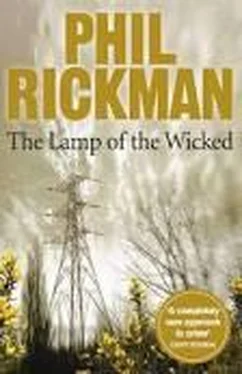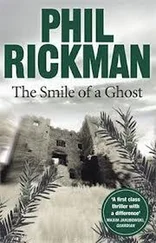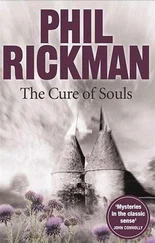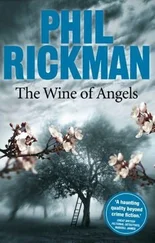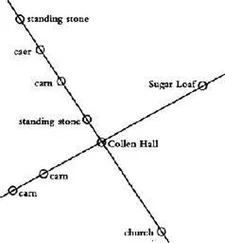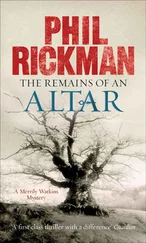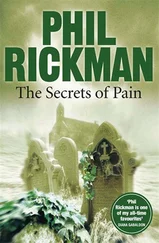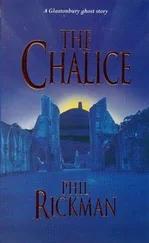And sometimes he hated God. And when Yorkshiremen said hated , there were no two ways about it. If God existed, it must be rough to have nobody who really liked you, nobody who actually trusted you not to shaft them in the end. Jane looked up at the ceiling, and she began to giggle with sheer, sour despair.
You poor, all-powerful, sad git.
‘I knew her mother, you see,’ Huw said.
Merrily sat down. Huw was looking down at his fingers on the table. He’d pushed his mug away, and then the biscuits.
‘Her mother lived in Brecon. Julia. A white settler in Mid- Wales. She were everything I didn’t like. Well-off. Widow of a bloke who ran a company that did up old country properties and flogged ’em off to folk like themselves – rich and rootless, desirous of a slice of countryside, a view they could own. Julia had a lovely farmhouse, down towards Bwlch, and she worshipped at Brecon Cathedral.’
Merrily suspected Huw was a socialist of the old, forgotten kind; his contempt for the former Bishop of Hereford, Mick Hunter, and Hunter’s New Labour friends was memorable. He leaned back. The lamplight made his skin look like sacking.
‘I went into the cathedral one afternoon. August 1993, this’d be. Funny, really – I hadn’t intended to go in at all. I were going for groceries at Kwiksave, only the pay-and-display were full – height of summer, hordes of tourists. I weren’t up for carrying a bloody great box about half a mile, so I decided to come back later. Parked up by the cathedral. Popped in, the way you do. Or, in my case, the way you don’t, not often. And there was this woman near the back, very quietly in tears.’ He looked across at Merrily. ‘Some of ’em, they make a big deal out of it – you know that. They want a sympathetic priest to come over: There, there, what’s the problem? This one was quite the opposite: private tears. You wouldn’t notice, unless you were a bloke on his own, thinking, What the bloody hell have I come in here for? ’
It was true. A cathedral was the last place you’d expect to find Huw – he might run into a bishop.
‘I left her alone. How she wanted it, you could tell. Stayed well away, said nowt, walked out.’
Merrily was picturing Brecon Cathedral: dusky pink stone on the shaded edge of town, near what was left of the castle. Unlike most cathedrals, it was a very quiet place, usually.
‘Anyroad, I sat on the grass, outside. Very warm day. Birdsong. Very near fell asleep. Didn’t notice her until she were coming past, not looking at me, like I were some owd vagrant. I opened me eyes, and before I could think about it, I just said, “Tell me to sod off, lass, if you like…” ’
Merrily was shaking her head. Who could resist that one? It was no big surprise to learn that, about fifteen minutes later, Huw and Julia Furlowe had been having afternoon tea together in a café in The Watton.
Her daughter was missing, this was it. Her only child, Donna, had just finished her final year at Christ College, Brecon, and was due to go up to Oxford in October. Meanwhile, she’d had a summer holiday job at a country hotel in the Cotswolds, up near Stroud. Although this was over two hours from home, and Donna had to stay there, it was a good arrangement because the proprietors of the hotel were family friends who would keep an eye on her. She was eighteen but, to be honest, her mother admitted, in some ways immature.
And now she was missing. She’d gone shopping in Cheltenham, getting a lift with the cook, arranging to meet him at a car park at four-thirty p.m. But when the cook came to collect his car, ten minutes later than arranged, she wasn’t there. When she didn’t show up after an hour, the cook called the hotel to find out if she’d made her own way back. When nobody had heard from her by nine that night, they first called Julia and then they called the police.
Three weeks now, and nothing. No sightings. Well, Cheltenham in August, what could you expect? Besides, missing eighteen-year-old girls, it wasn’t all that unusual. Not in the summertime. Try not to worry too much, they said.
But Julia knew that something must have happened. They were close, she and Donna, always had been, especially since Tim had died, so suddenly – never any suspicion that there was anything wrong with his heart; he’d still been playing rugby at forty-eight.
Couldn’t Donna have fallen in love – whirlwind holiday romance, gone off with him, the way young girls did? Absolutely out of the question. Was it possible Donna might have been unhappy about going to Oxford, felt unable to confide this to her mother? No, no, no . How could she be so sure? Because they were close . Truly, truly close.
The Brecon and Radnor Express had carried the story; Huw must have missed it. Julia Furlowe went to the Cathedral every day, to pray; Huw wouldn’t have known, hadn’t been near the place in weeks.
Middle of the following week, he’d driven Julia down to Stroud and Cheltenham and they’d done the rounds with colour photographs. Have you seen this girl? You wouldn’t forget, if you had – lovely girl, soft ash-blonde hair.
Like her mother: Julia Furlowe, forty-nine, a widow for six years, one daughter, missing. A soft-spoken southerner, exiled in Wales. Alone now in a luxury farmhouse with a view down the Usk, where she painted local views in watercolour and gouache, very accomplished, and sold them in the local craft shops.
‘And I held back,’ Huw said. ‘As you would in a situation like that. Held back a long time. Longer than she were inclined to. Separate rooms, the first three trips. By the fourth, it seemed ridiculous. We’d prayed together every night, always went to the nearest church and prayed together. Knelt together and prayed to God, for Donna to be all right.’
Merrily met Huw’s eyes; his face was pale and roughened in the feeble light: sackcloth and ashes.
‘We never lived together. I’d spend a couple of nights at her place at Bwlch, either side of Sunday. What a strange bloody time that were. Love and sadness. Love and anxiety. Love and stress, love and desperation. We used to tell each other how it would be when Donna turned up. Happen wi’ a babby – Julia were ready for that… that would’ve been just fine. I used to think, I wonder what she’s like when she’s really smiling… smiling from the heart, without reservation?’
They spent Christmas together. Christmas 1993, the first Christmas there’d been no Donna. Christmas morning, Julia came to Huw’s church, up in the Beacons. The locals knew by now, knew who she was but said nowt. A farmer’s wife said she was glad for them, glad for Huw – a minister up here, all alone, it had never seemed right. Julia had cried a lot, that night.
The next day, she started a painting, of the snow on Pen- y-fan and then abandoned it, saying she had to get home – what if Donna had come back? What if she was coming back for New Year? Donna always loved New Year, more than Christmas as she’d got older.
Donna didn’t come back for New Year.
It was sometime towards the end of February when Huw went over to Julia’s place, picking up her paper, as usual, at the shop in Bwlch, tossing it down on the long coffee table in the vast stone sitting room.
And Julia had glanced at it and then picked it up and – he’d never forget this as long as he bloody lived – Julia had held the paper at arm’s length, feeling in the pocket of her denim frock for her reading glasses.
And she’d said, almost vaguely, she’d said:
‘That’s Fred .’
A long moment, because Huw had read the story by then and thought nothing of it except his usual tired disgust, and Julia hadn’t the faintest idea what it was about, she’d just seen the picture. Some nights, even now, Huw would lie in bed, hearing her voice on the north-east wind from Pen-y-fan: That’s Fred… that’s Fred… that’s Fred …
Читать дальше
